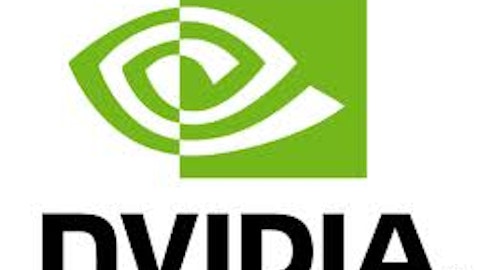Facebook Inc (NASDAQ:FB) is one of the most volatile large-caps, and it looks like investors have forgotten basic online economics. A recent study of almost 250 brands found that Facebook creates around 40 times fewer new customers than search engines, and customers acquired through social media properties like Facebook are worth less than customers acquired through search engines. Right now Facebook looks too expensive, given its lack of ability to drive new customers.
Advertising 101

The problem is that the online brand advertising market is more crowded than the direct response market. Online video with properties like YouTube and Hulu are great places for brand marketers to place their ads with wide reach and in a premium format. While Facebook Inc (NASDAQ:FB) isestimated to reach around 42% of all global Internet users on a daily basis, Google Inc (NASDAQ:GOOG)’s YouTube is only a few percentage points behind with an estimated daily global reach around 35%.

FB Total Return Price data by YCharts
Growth with a grain of salt
Facebook Inc (NASDAQ:FB) bulls talk about growth as the perfect way to justify Facebook’s valuation. The problem is that from a product standpoint, Facebook has few new products left. It has already put ads directly in desktop and mobile newsfeeds. Over the next couple quarters its video adsshould start to boost earnings, but what will come after that? Its number of average daily users is close to topping out in valuable advertising markets like the United States.
The direct response market
Unlike Facebook Inc (NASDAQ:FB), search engines are a perfect fit for direct marketers. They offer targeted ads to individuals who have stated exactly what action they would look to complete.
Google Inc (NASDAQ:GOOG) and the Chinese company Baidu.com, Inc. (ADR) (NASDAQ:BIDU) both control more than 60% of their search engine market in their respective nations of the U.S. and China. High market share allows these companies to charge higher prices and earn substantial profit margins of 21% and 39.9% respectively, while Facebook Inc (NASDAQ:FB)’s profit margin is just 9.1%.
The future
Mobile poses a challenge for Facebook Inc (NASDAQ:FB), Google Inc (NASDAQ:GOOG) and Baidu.com, Inc. (ADR) (NASDAQ:BIDU). Smaller screens leave less real estate for ads. Also, mobile connections do not offer the high bandwidth speeds that traditional computers enjoy. Slower connections decrease revenue due to lack of support for expensive video ads. Still, the acceptance of high speed 4G wireless networks over the next couple years will increase the use of mobile video.
Fundamentally, the future gap between Facebook Inc (NASDAQ:FB) and search engines looks very similar to the current gap. Google Inc (NASDAQ:GOOG) controls more than half of the entire global mobile advertising market while Facebook has just 13%.
One important difference between Google Inc (NASDAQ:GOOG) and Baidu.com, Inc. (ADR) (NASDAQ:BIDU) is that Baidu offers higher growth prospects. China is still a developing nation; the number of online users is growing 20% year over year, and there is room for more growth as only 44% of China is currently online.
Conclusion
Facebook Inc (NASDAQ:FB) is a valuable company with a tight grip on the social networking world. Regardless, the company’s profit margin is driven down by the fact that there are a number of properties that offer similar brand advertising opportunities. With a price to earnings (P/E) ratio around 175, a price to sales (P/S) ratio around 15 and a profit margin of 9.1%, Facebook is just too expensive.
For now, Google Inc (NASDAQ:GOOG) or Baidu.com, Inc. (ADR) (NASDAQ:BIDU) are better options. Google trades at a P/S ratio around 5 with a return on investment (ROI) of 14.4% and a profit margin of 21.0%. Google’s control of the search engine market is holding steady, and its margins should stay the same in the coming years.
Baidu.com, Inc. (ADR) (NASDAQ:BIDU)’s valuation is higher than Google Inc (NASDAQ:GOOG)’s with a P/S ratio around 11, but it compensates with a higher ROI of 25.4% and a profit margin of 39.9%. As the Chinese market matures it is expected that Baidu’s margins will fall to be in line with Google’s, but China’s growing Internet population makes Baidu’s higher valuation justifiable.
Joshua Bondy has no position in any stocks mentioned. The Motley Fool recommends Baidu, Facebook, and Google. The Motley Fool owns shares of Baidu, Facebook, and Google.
The article Is Facebook Ahead of Itself? originally appeared on Fool.com and is written by Joshua Bondy
Copyright © 1995 – 2013 The Motley Fool, LLC. All rights reserved. The Motley Fool has a disclosure policy.





